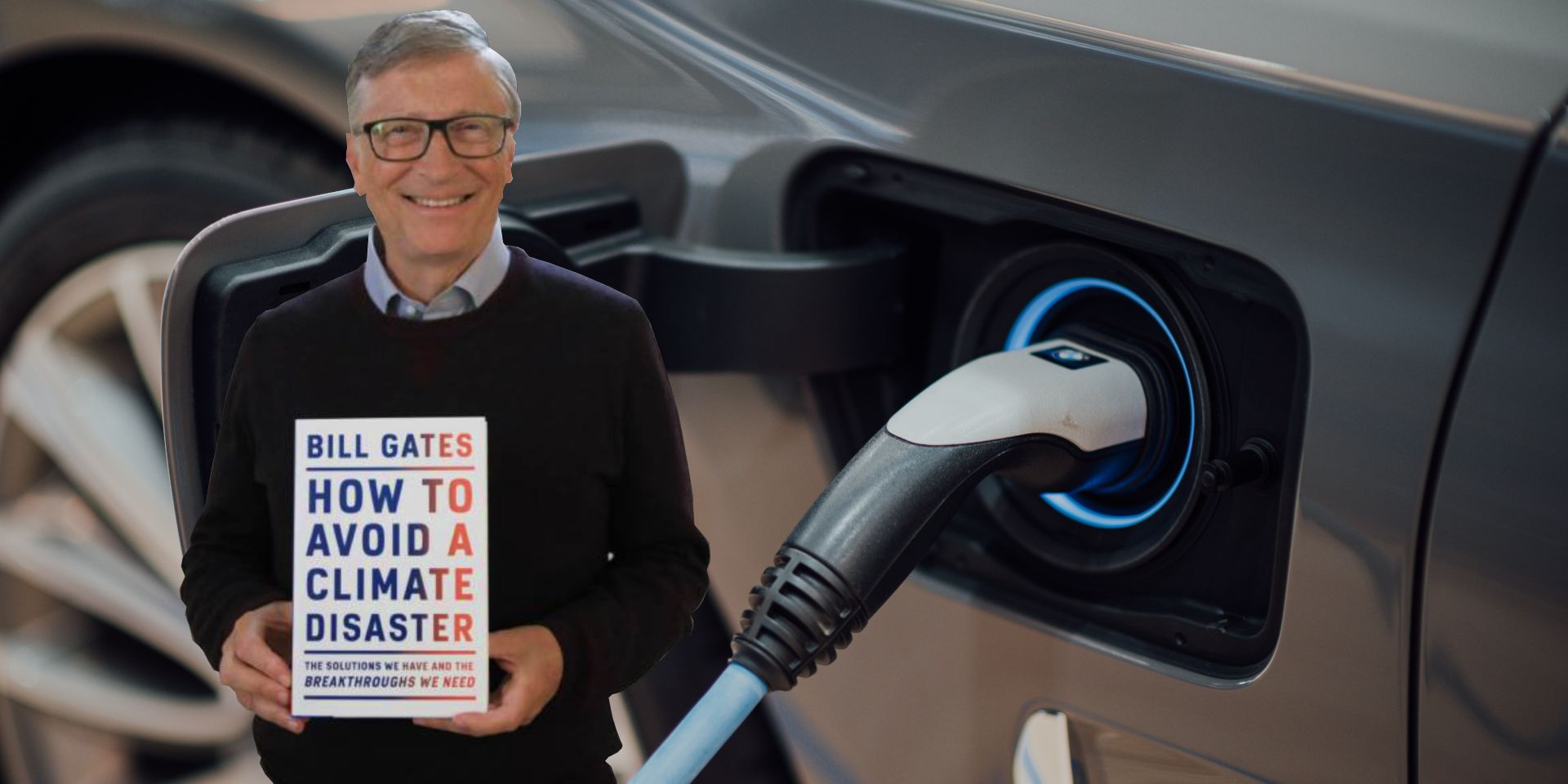Microsoft co-founder Bill Gates explained in an interview recently why he believes that electric vehicles from the likes of Tesla are only part of the solution to climate change. Gates was talking with journalist Andrew Ross Sorkin on Clubhouse and covered topics including what car he drives, what he's been watching on Netflix, and why he uses an Android phone rather than an iPhone. Much of the discussion, though, was to do with the topics covered in his new book, How To Avoid A Climate Disaster.
Gates has focused increasingly on a variety of causes as he has reduced his involvement with Microsoft over the last 15 years. One of the main areas on which he has been focused is climate change and his book is intended to give a clear picture of the challenges it presents, as well as to present a "plan for how the world can get to zero greenhouse gas emissions in time to avoid a climate catastrophe." Sorkin took the opportunity of the Clubhouse interview to discuss some of the main points in depth.
Explaining the complexity of the issues to do with climate change, Gates said: "You almost have to be polymathic to understand it because there's science, there's economics, there are the models, there's weather." In short, though, he said, 51 billion tonnes of emissions are being produced a year and that needs to come down to zero in order to limit the worst possible damage. Whiles Gates said that the near-term reductions we'd mainly concentrated on — like wind power, solar power, and electric cars — were "phenomenal" in their own way, he also said: "But we are deeply underinvested in areas like cement and steel that produce way more emissions between them than all the passenger cars in the world."
Why Bill Gates Says Nuclear Is The Answer
Gates suggested that one of the benefits of such near-term reductions beyond their own impact was that they provide a model for scaling up and reducing the costs of other areas and noted that the Breakthrough Energy organization that he founded in 2015 was seeking more solutions to fund in the areas of industry and direct air capture. He was clear, though, that a whole host of approaches are needed to tackle climate change and argued that nuclear energy, in particular, would be crucial to decarbonizing the grid. He pointed to the current amount of renewable energy generation in the US of about 6 percent (and less globally) and explained that to get that amount to even 80 percent in time for the required impact "implies a build rate over three times the peak of what we've achieved so far … 80 percent is kind of mind-blowing. We're not yet on a path to get that kind of penetration."
Gates went on to point out that nuclear energy can not only produce clean energy in the amounts required but that its dangers are far outweighed by those of fossil fuels. "Even if you account for the few accidents it's by far the safest thing," he said. He did note, though, that he felt the current generation of nuclear reactors would not be the technology to take forward.
He explained: "They are just too complex and way too expensive. And because their safety relies on operators to do the right things — they're reactors with very high pressures inside — we need fourth-generation reactors with no held pressure and where the physics alone says the radioactive material won't leave the site area, using liquid metal sodium for the cooling instead of water."
Gates, who also discussed the COVID-19 pandemic and the importance of clear messaging, is currently involved in the construction of a demo plant that he hopes will demonstrate the viability of the technology and allow the safety and cost to be examined.
Source: Brian Penny/YouTube


